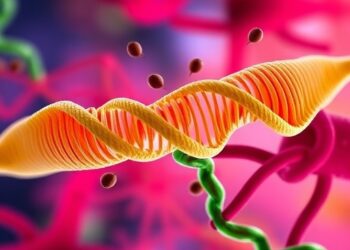Researchers at the National Institutes of Health (NIH) found that rates of preteen suicide (ages 8-12) have been increasing by approximately 8% annually since 2008. These increases were most pronounced among female preteens, American Indian/Alaska Native or Asian/Pacific Islander preteens, and Hispanic preteens. While the overall number of preteen suicides is small compared to teen and adult populations, the researchers say the findings from this analysis underscore the need for age-appropriate and culturally responsive prevention efforts that include suicide risk screening and lethal means safety counseling. The findings also highlight the need to better understand, identify, and help preteens who may be at risk for suicide.
Researchers at the National Institutes of Health (NIH) found that rates of preteen suicide (ages 8-12) have been increasing by approximately 8% annually since 2008. These increases were most pronounced among female preteens, American Indian/Alaska Native or Asian/Pacific Islander preteens, and Hispanic preteens. While the overall number of preteen suicides is small compared to teen and adult populations, the researchers say the findings from this analysis underscore the need for age-appropriate and culturally responsive prevention efforts that include suicide risk screening and lethal means safety counseling. The findings also highlight the need to better understand, identify, and help preteens who may be at risk for suicide.
The researchers also found:
- Femal preteens had a disproportionate increase in suicide rate compared to male preteens.
- Black preteens had the highest overall suicide rate.
- Hispanic preteens had the greatest percent increase in suicide rate.
- Hanging and suffocation were the most common suicide methods, but firearms were the most rapidly increasing suicide method.
Using 2001-2022 data from the Centers for Disease Control and Prevention’s Web-based Injury Statistics Query and Reporting System for U.S. youth (ages 8-12), the researchers examined suicide deaths overall and by sex, race, ethnicity, suicide method, metropolitan or non-metropolitan area, and geographic region.
The study was conducted in collaboration with lead researcher Donna A. Ruch and colleagues from The Ohio State University College of Medicine and Nationwide Children’s Hospital, Columbus, and researchers at the Washington University School of Medicine, St. Louis. The study appears in the journal JAMA Network Open.
Lisa Horowitz, Ph.D., M.P.H., senior associate scientist, pediatric psychologist, and director of Patient Safety and Quality for the National Institute of Mental Health Intramural Research Program, is available for interviews.
Article: Ruch, D. A., Horowitz, L. M., Hughes, J. L., Sarkisian, K., Luby, J. L., Fontanella, C. A., & Bridge, J. A. (2024). Suicide in US preteens aged 8 to 12 years, 2001-2022. JAMA Network Open.
If you are suicidal or in emotional distress, call or text 988 or chat online to connect with the 988 Suicide & Crisis Lifeline. The Lifeline provides 24-hour, confidential support to anyone in suicidal crisis or emotional distress.
###
About the National Institute of Mental Health (NIMH): The mission of the NIMH is to transform the understanding and treatment of mental illnesses through basic and clinical research, paving the way for prevention, recovery, and cure. For more information, visit the NIMH website.
About the National Institutes of Health (NIH): NIH, the nation’s medical research agency, includes 27 Institutes and Centers and is a component of the U.S. Department of Health and Human Services. NIH is the primary federal agency conducting and supporting basic, clinical, and translational medical research, and is investigating the causes, treatments, and cures for both common and rare diseases. For more information about NIH and its programs, visit the NIH website.
NIH…Turning Discovery Into Health®
Journal
JAMA Network Open




